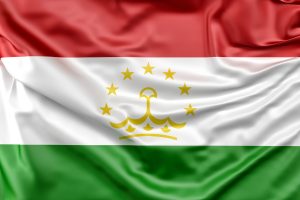Two weeks after opening an election observation mission in Tajikistan, the OSCE Office for Democratic Institutions and Human Rights (ODIHR) announced that it had cancelled the mission and plans to observe the country’s upcoming parliamentary elections, scheduled for March.
“We deeply regret that our observation of the forthcoming parliamentary elections in Tajikistan will no longer be possible,” ODIHR Director Maria Telalian said in a statement announcing the decision. “But the absence of formal guarantees that our observers will be able to carry out their work less than a month before election day made our withdrawal from the observation unavoidable.”
The statement characterized the observation mission as “impossible” without assurances from the Tajik authorities that international observers would be accredited.
The OSCE – the Organization for Security and Co-operation in Europe – is a regional security-oriented intergovernmental organization which has its roots in the tense reality of Cold War Europe and efforts to bridge the gap between the Western and Eastern blocs. The collapse of the Soviet Union in 1991 prompted the evolution of the Conference on Security and Co-operation in Europe (CSCE) into the OSCE by 1995, with members across Europe, Eurasia, and North America. ODIHR, established in 1991, has for more than 30 years observed elections across the OSCE’s 57 participating countries, including Tajikistan.
Tajikistan was admitted to the OSCE in January 1992 and signed the Helsinki Final Act, better known as the 1975 Helsinki Accords, the following month. Dushanbe, however, has never signed onto the OSCE’s other foundational text, the 1990 Paris Charter which, among other things, laid the ground work for what became ODIHR.
Tajikistan has cooperated with the OSCE’s election observation missions since 2000, starting with parliamentary polls in February 2000. These missions have consistently noted that votes in the country are far from free and fair and which offered almost comically good faith advice to a government that clearly never had any intention of heeding it.
The OSCE’s last election observation missions in Tajikistan took place in March and October 2020, covering the parliamentary and presidential elections that year. The observations missions have long yielded awkward reports in which attempts at adherence to technical requirements sit alongside conclusions that, as the presidential election in 2020 demonstrated, “electoral process lacked credibility and transparency, including on election day.”
A needs assessment conducted in December 2024, in anticipation that Tajik authorities would once again invite an election observation mission, noted that “previous ODIHR electoral recommendations remain unaddressed.” The needs assessment also mentioned concerns from various interlocutors about the independence and impartiality of the election administration as well as the “overall deterioration of the media environment in recent years.”
The needs assessment recommended the deployment of 20 long-term observers and 150 short-term observers.
On January 22, the mission was opened in Dushanbe by Ditmir Bushati, a former Albanian foreign minister, and a core team of 11 experts. 22 long-term observers were expected to be deployed throughout the country starting on January 29.
But two weeks after the mission opened, the OSCE announced its cancellation, citing a lack of engagement from the Tajik authorities on the practicalities of making the mission happen.
In a statement, ODIHR said, “The continuing lack of assurances that ODIHR experts and international observers would receive the accreditation needed to observe the election followed numerous attempts to obtain clarity on the issue and an extension of the deadline for a formal response from the authorities.”
The statement stressed that election observation missions are deployed “at the invitation of states, and host governments need to provide the necessary conditions for their effective and unrestricted operation.”
“Prolonged uncertainty surrounding accreditation undermines the integrity of this process,” ODIHR added.
The statement pointed to commitments made by OSCE members under the 1999 Istanbul Document to not only “conduct free and fair elections” but to “invite observers to our elections from other participating States, the ODIHR, the OSCE Parliamentary Assembly and appropriate institutions and organizations that wish to observe our election proceedings” and to “follow up promptly the ODIHR’s election assessment and recommendations.”
Although ODIHR says that it “will continue to support Tajikistan in implementing the commitments it has made to strengthen democracy and human rights” it’s pretty clear that Dushanbe isn’t particularly interested.
Just because the OSCE isn’t observing the election, doesn’t mean there won’t be observers. There just won’t be critical observers. The Collective Security Treaty Organization will be there to sing the praises of Dushanbe’s democracy.
Given the total domination of the state by President Emomali Rahmon, Tajikistan’s parliamentary elections are typically sleepy affairs but they nevertheless reveal some of the contours of Tajik politics. After the 2020 elections, the president’s party – the People’s Democratic Party – took 47 of 63 seats in the lower house. The upper house, the National Assembly, has 33 members, 25 of which are elected for a five-year terms by members of local councils and eight are appointed by the president. The chair of the National Assembly is second in line to the Tajik presidency. In 2020, the body elected Rustam Emomali, the president’s son, to be chair.

































